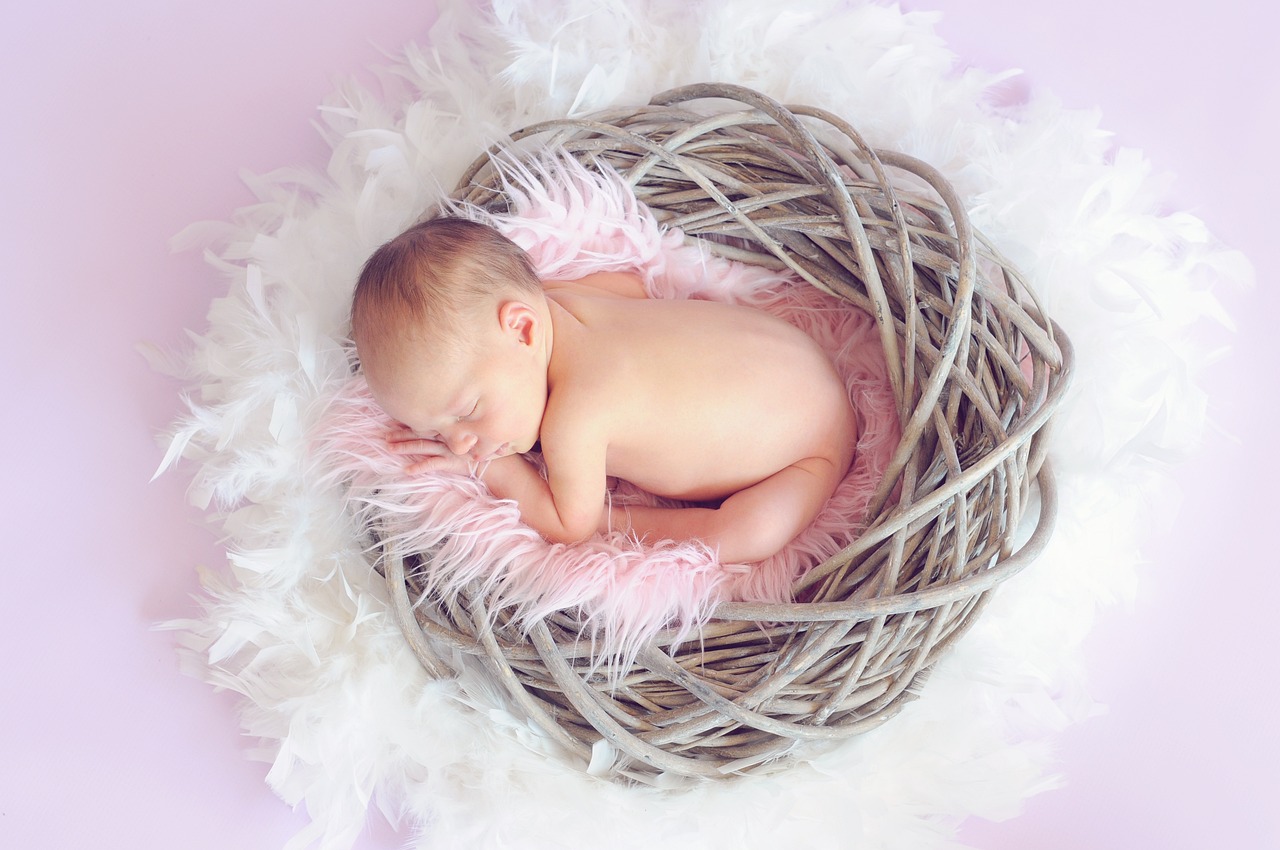Welcome to our blog, where we delve into the world of baby cosmetic products with a focus on confidence and safety. As parents, ensuring the well-being of our little ones is paramount, especially when it comes to skincare. Explore expert insights, reviews, and guidelines to make informed choices about the safest and most reliable baby cosmetics. From gentle lotions to soothing shampoos, we’re here to empower you with knowledge, helping you navigate the vast array of products with confidence.
Where And How Resources
- Are baby cosmetic products necessary? See Below.
- What ingredients should I avoid in baby cosmetics? See Below.
- Is it safe to use scented products on a baby’s skin? See Below.
- How often should I bathe my baby using baby cosmetics? See Below.
- Can I use regular skincare products on my baby? See Below.
- What makes a baby cosmetic product hypoallergenic?
- The term “hypoallergenic” in the context of baby cosmetic products implies that the product is formulated with ingredients that are less likely to cause allergic reactions or sensitivities in individuals, including babies. However, it’s important to note that the term “hypoallergenic” is not regulated by a specific standard or set of criteria, so its meaning can vary among different brands.
- Are natural or organic baby products better?
- The choice between natural or organic baby products depends on individual preferences, values, and specific considerations. Both types of products have their advantages, and what may be considered “better” can vary based on factors such as personal beliefs, potential allergies, and environmental concerns.

Sunscreens for baby
- How do I choose the right sunscreen for my baby? See Below.
- What is the best way to treat diaper rash with baby skincare products?
- Change diapers frequently to ensure the baby’s skin stays dry.
- Clean the diaper area gently using fragrance-free baby wipes or a soft, damp cloth.
- Use a Diaper Rash Cream or Ointment:
- Apply a thick layer of a diaper rash cream or ointment with each diaper change.
- Look for products containing zinc oxide, which provides a protective barrier on the skin.
- Choose Fragrance-Free and Hypoallergenic Products:
- Use baby wipes, diapers, and skincare products that are fragrance-free and hypoallergenic to reduce the risk of irritation.
- Allow Diaper-Free Time:
- Give your baby some time without a diaper to allow the skin to air out. Place the baby on a waterproof mat or towel to minimize mess.
- Avoid Tight-fitting Diapers:
- Use diapers that fit well but are not too tight. Loose-fitting diapers can help reduce friction and allow better air circulation.
Gentle Cleansing Baths:
- Pat, Don’t Rub:
- After cleaning the diaper area, pat it dry gently with a soft towel. Avoid rubbing, as it can further irritate the skin.
- Consider Oatmeal Baths:
- Oatmeal baths can be soothing for irritated skin. Use colloidal oatmeal or oatmeal-based bath products designed for babies.
- Consult with Your Pediatrician:
- If the diaper rash persists or becomes severe, consult with your pediatrician for further advice and possible prescription medications.
- Check for Possible Allergies:
- Pay attention to any new products you’ve introduced and consider if they could be contributing to the diaper rash. Switch to alternative products if needed.
Maintain Good Hygiene:

- Wash your hands thoroughly before and after diaper changes to prevent the spread of bacteria.
- At what age can I start using baby lotions and creams?
- It is generally safe to start using baby lotions and creams on your newborn’s skin shortly after birth.
- How do I know if my baby has sensitive skin?
- Determining whether your baby has sensitive skin requires attentive observation and consideration of various factors. Here are some signs that may indicate your baby has sensitive skin:
- Frequent Rashes or Redness: Dryness or Peeling: Eczema or Atopic Dermatitis: Reactions to Skincare Products: Irritation from Fabrics: Discomfort during Baths: Allergic Reactions: Prone to Diaper Rash: Family History:
- Can I use baby oil for massage on a newborn?
- Yes, you can use baby oil for massage on a newborn, but it’s important to choose a baby oil specifically formulated for infants and to use it with care. Choose a Mild and Fragrance-Free Baby Oil:
- What is the importance of pH in baby skincare products?
- he pH (potential of hydrogen) level of baby skincare products is crucial because it can significantly impact the health and well-being of a baby’s delicate skin.
cradle cap
- How do I deal with cradle cap using baby skincare products?
- Cradle cap, also known as seborrheic dermatitis, is a common condition in infants that leads to the development of yellow, greasy, scaly patches on the scalp. While cradle cap is generally harmless, it can be managed using baby skincare products and some gentle care.
- Can I use baby wipes on my baby’s face?
- Yes, you can use baby wipes on your baby’s face, but it’s essential to choose wipes specifically designed for use on the face and to be gentle on delicate skin.
- What is the shelf life of baby skincare products?
- The shelf life of baby skincare products can vary depending on the specific product and its ingredients. In general, most baby skincare products, such as lotions, creams, shampoos, and wipes, have a shelf life ranging from 1 to 3 years.
How do I patch-test a new baby cosmetic product?
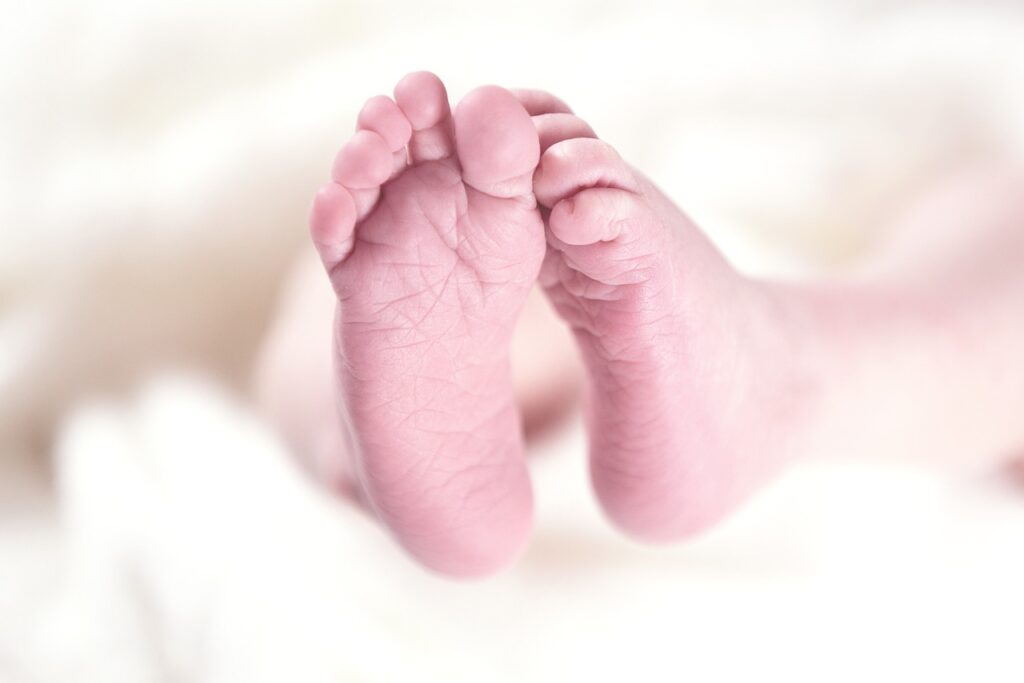
- Patch-testing a new baby cosmetic product is a crucial step to ensure that the product is safe and well-tolerated by your baby’s skin.
- Are there any regulations for baby skincare product safety?
- Yes, there are regulations in place to ensure the safety of baby skincare products. These regulations are implemented by government agencies in various countries to safeguard the well-being of infants and children.
- What are the potential side effects of using certain baby cosmetic ingredients?
- While baby skincare products are generally formulated to be safe for use on infants, it’s important to be aware of the potential side effects that certain ingredients may pose. Sensitivity varies among individuals, and what works well for one baby may not be suitable for another.
- Give your baby gentle baths using a mild, fragrance-free baby soap.
- Avoid harsh soaps and bubble baths, as they can contribute to irritation.
It’s crucial to consult with a pediatrician or a dermatologist for personalized advice based on your baby’s specific needs and skin type.
Recommended baby cosmetic products, along with a brief description:
- Are baby cosmetic products necessary?
- The necessity of baby cosmetic products depends on various factors, including your baby’s individual needs and skin sensitivities. While it’s not essential to use an extensive range of products, some basic items can be beneficial for maintaining your baby’s hygiene and skincare.
- Products like a gentle baby wash, shampoo, and moisturizer can help keep your baby’s skin clean and hydrated. However, it’s crucial to choose products that are specifically formulated for babies, as their skin is more delicate and prone to sensitivity.
Recommended
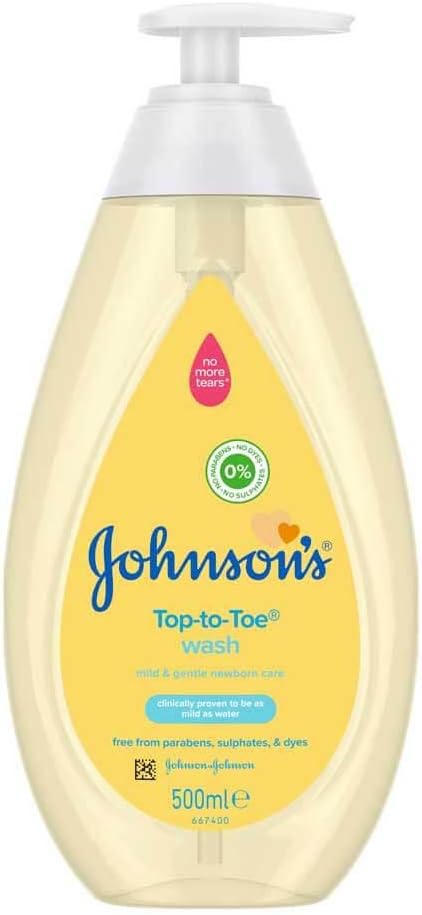
- Johnson’s Head-To-Toe Gentle Baby Wash: A mild, tear-free formula suitable for daily use, providing gentle cleansing for your baby’s delicate skin.
- Mustela Baby Shampoo: Known for its hypoallergenic and biodegradable formula, this shampoo is designed to respect the fragile nature of a baby’s hair and scalp.
- Aveeno Baby Daily Moisture Lotion: This lotion is formulated with natural colloidal oatmeal, providing moisture and soothing relief for a baby’s sensitive skin.
- Cetaphil Baby Wash and Shampoo: A dermatologist-tested, paraben-free option that gently cleanses while being hypoallergenic and suitable for newborns.
- Earth Mama Organics Baby Lotion: A natural and organic choice, this lotion is free from synthetic fragrances and designed to nourish and moisturize a baby’s skin.
- What ingredients should I avoid in baby cosmetics?
Avoid
Parabens: Phthalates: Sulfates (SLS and SLES): Fragrances: Dyes and Colorants: Mineral Oil: Formaldehyde and Formaldehyde-releasing Preservatives: Alcohol: Talc: Petroleum-based Ingredients:
Always check the ingredient list on baby cosmetic products, and consider opting for products labeled as hypoallergenic and specifically formulated for sensitive baby skin.
Recommended
- Babyganics Mineral-Based Baby Sunscreen: Free from oxybenzone and octinoxate, it provides broad-spectrum protection without harmful chemicals.
- California Baby Super Sensitive Shampoo & Body Wash: This fragrance-free option avoids common irritants like sulfates, synthetic fragrances, and gluten.
- Burt’s Bees Baby Bee Diaper Ointment: Free from phthalates, parabens, petrolatum, and SLS, it’s a natural choice for diaper rash protection.
- Seventh Generation Free & Clear Baby Wipes: These wipes are free from fragrances, alcohol, and parabens, ensuring a gentle and safe cleaning experience.
- Aquaphor Baby Healing Ointment: A petroleum-based ointment without preservatives, fragrances, or dyes, suitable for various skincare needs.
- Is it safe to use scented products on a baby’s skin?
Recommended
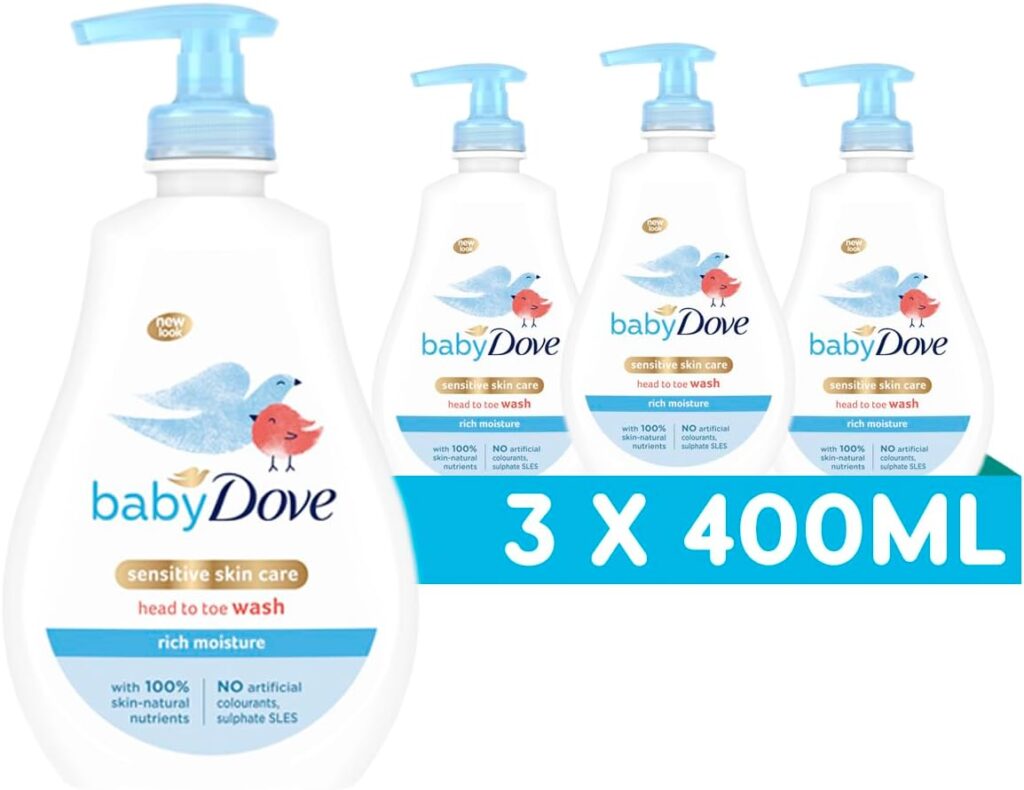
- Baby Dove Sensitive Moisture Fragrance-Free Baby Wash: Designed for sensitive skin, it cleanses without added fragrances, providing a mild and gentle experience.
- Honest Company Truly Calming Lavender Shampoo + Body Wash: Contains natural lavender essential oil for a calming effect, suitable for babies without skin sensitivities.
- CeraVe Baby Wash & Shampoo: Fragrance-free and developed with dermatologists, this product is suitable for sensitive skin and helps maintain the skin’s natural barrier.
- Babo Botanicals Sensitive Baby Fragrance-Free Daily Hydra Lotion: A hypoallergenic moisturizer without added fragrances, perfect for delicate baby skin.
- Eucerin Baby Eczema Relief Body Cream: Fragrance-free and formulated to soothe dry, itchy skin associated with eczema, providing relief without added scents.
- How often should I bathe my baby using baby cosmetics?
frequency
The frequency of bathing your baby with baby cosmetics depends on various factors, including your baby’s age, skin type, and any specific recommendations from healthcare professionals. Here’s a general guideline:
- Newborns (0-3 months): In the first few weeks, it’s typically recommended to give sponge baths until the umbilical cord stump falls off and the circumcision heals, if applicable. After that, you can start giving gentle baths 2-3 times per week.
- 3-6 months: As your baby gets a bit older, you can increase the frequency to 3-4 times per week. At this stage, babies don’t get as dirty, and more frequent bathing may not be necessary unless they enjoy it or need it for relaxation.
- 6-12 months: At this stage, you can continue with 2-3 baths per week, adjusting based on your baby’s activity level and preference. As your baby becomes more mobile, they might get dirtier, and you may need to increase the frequency.
Recommended

- Burt’s Bees Baby Bee Shampoo & Wash: A mild formula suitable for daily use, keeping your baby’s skin clean without over-drying.
- Puracy Natural Baby Shampoo & Body Wash: Gentle enough for daily baths, this product is free from harsh chemicals and suitable for sensitive skin.
- Weleda Calendula Baby Shampoo and Body Wash: This organic option is mild enough for daily use, incorporating calendula extract for added skin-soothing benefits.
- Cetaphil Baby Wash and Shampoo: Dermatologist-recommended, it’s gentle for everyday use, ensuring your baby stays clean and comfortable.
- Aveeno Baby Soothing Relief Creamy Wash: Formulated for daily cleansing, it’s fragrance-free and designed to soothe and moisturize delicate baby skin.
- Can I use regular skincare products on my baby?
Recommended
- Cetaphil Baby Daily Lotion: A gentle, hypoallergenic moisturizer suitable for baby’s sensitive skin, keeping it hydrated without harsh ingredients.
- CeraVe Baby Moisturizing Cream: Developed with dermatologists, this cream is suitable for sensitive skin, providing long-lasting hydration without added fragrances.
- Johnson’s CottonTouch Newborn Baby Face & Body Lotion: Specially designed for newborns, it’s lightweight and gentle, suitable for delicate baby skin.
- Eucerin Baby Body Lotion: Fragrance-free and enriched with nourishing ingredients, this lotion is suitable for daily use on a baby’s skin.
- Aveeno Baby Daily Moisture Lotion: A popular choice, it’s gentle enough for daily use and formulated with natural colloidal oatmeal for added nourishment.
Sunscreen
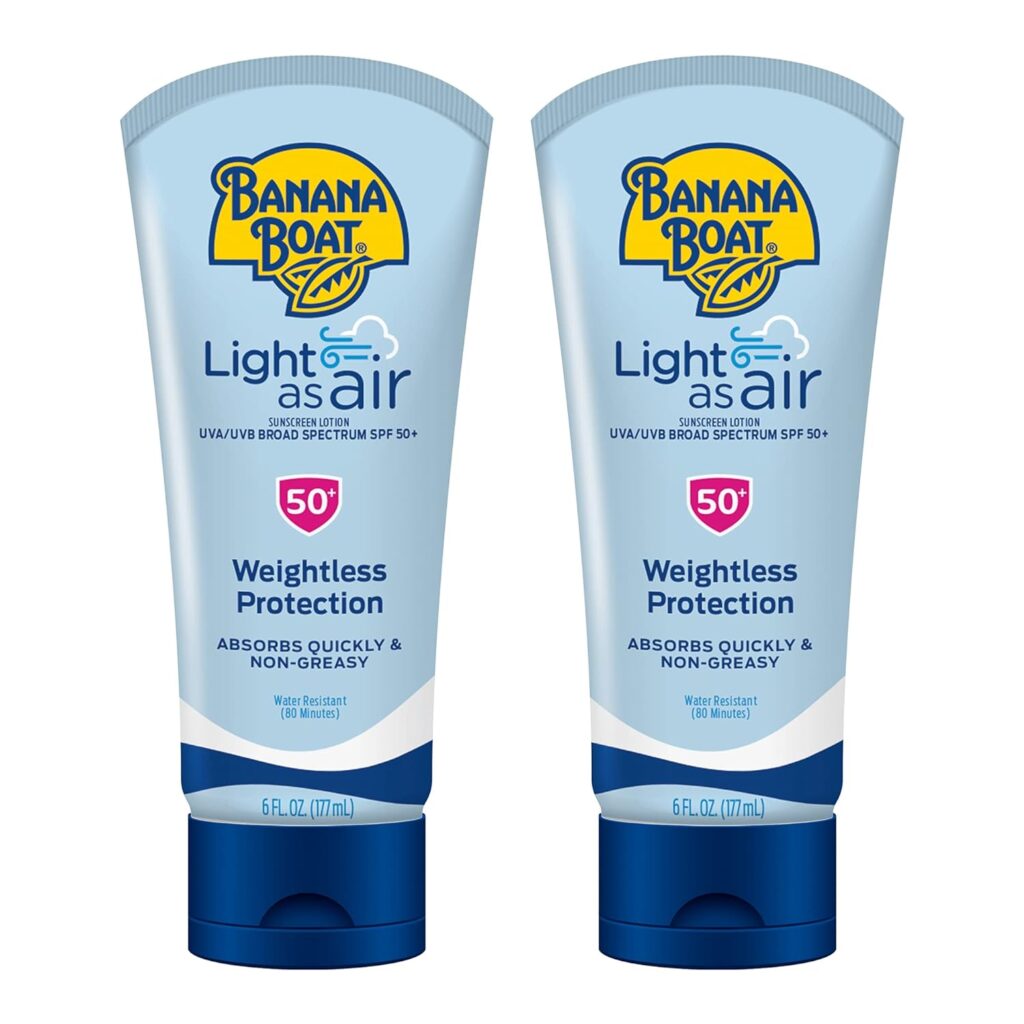
Choosing the right sunscreen for your baby is crucial to protect their delicate skin from harmful UV rays. Here are some key considerations and tips for selecting an appropriate sunscreen:
- Babyganics Mineral-Based Baby Sunscreen SPF 50:
- Formulated specifically for babies.
- Contains non-allergenic and plant-derived ingredients.
- Provides broad-spectrum protection.
- Coppertone Pure & Simple Baby SPF 50 Sunscreen:
- Designed for babies’ delicate skin.
- Free from fragrance, parabens, and phthalates.
- Contains zinc oxide for sun protection.
- Aveeno Baby Continuous Protection Sensitive Skin SPF 50:
- Specially formulated for baby’s sensitive skin.
- Fragrance-free and hypoallergenic.
- Provides broad-spectrum UVA and UVB protection.
Opt for Broad-Spectrum Protection:
- Neutrogena Pure & Free Baby Sunscreen SPF 50:
- Offers broad-spectrum UVA and UVB protection.
- Features a tear-free formula suitable for babies.
- Dermatologist-tested and hypoallergenic.
- Blue Lizard Australian Sunscreen Baby SPF 30+:
- Broad-spectrum protection against UVA and UVB rays.
- Smart bottle turns pink when exposed to harmful UV sunlight.
- Fragrance-free and paraben-free.
- Badger Baby Sunscreen Cream SPF 30:
- Broad-spectrum protection using zinc oxide.
- Organic and contains natural ingredients.
- Free from synthetic fragrances and preservatives.
Check for a Minimum SPF of 30:
- California Baby Super Sensitive Sunscreen SPF 30+:
- Specifically designed for sensitive skin.
- Mineral-based protection with titanium dioxide.
- Free from common allergens.
- Banana Boat Simply Protect Baby SPF 50+:
- SPF 50+ for high-level protection.
- Tear-free and gentle on baby’s skin.
- Oxybenzone and paraben-free.
- Eucerin Baby Sun Lotion SPF 30:
- Specially formulated for delicate baby skin.
- Provides broad-spectrum protection.
- Dermatologist and pediatrician recommended.
Hypoallergenic and Fragrance-Free:
- Thinkbaby Safe Sunscreen SPF 50+:
- Free from harmful chemicals and known allergens.
- Hypoallergenic and suitable for sensitive skin.
- Does not contain synthetic fragrances.
- TruKid Sunny Days Sport SPF 30+:
- Hypoallergenic and fragrance-free.
- Non-nano zinc oxide provides broad-spectrum protection.
- Water-resistant for up to 80 minutes.
- Mustela Mineral Sunscreen SPF 50:
- Hypoallergenic and fragrance-free.
- Formulated for babies’ sensitive skin.
- Provides broad-spectrum UVA and UVB protection.
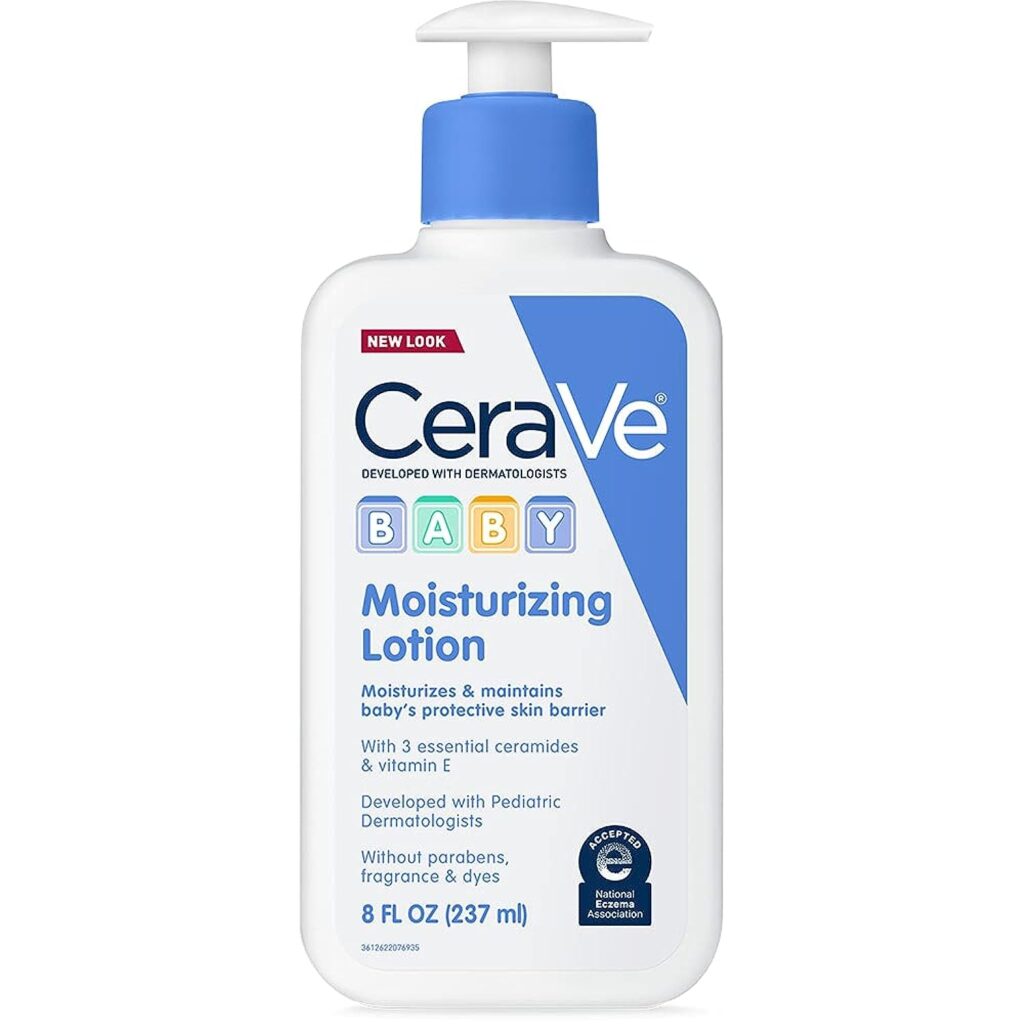
Water-Resistant Formulation:
- CeraVe Baby Sunscreen SPF 45:
- Water-resistant for up to 80 minutes.
- Developed with dermatologists.
- Features essential ceramides to help protect and maintain baby’s skin barrier.
- Blue Lizard Australian Sunscreen Baby SPF 30+:
- Water-resistant formula suitable for water activities.
- Contains zinc oxide for sun protection.
- Fragrance-free and paraben-free.
- Coppertone Water Babies Sunscreen Lotion SPF 50:
- Water-resistant for up to 80 minutes.
- Hypoallergenic and suitable for babies’ delicate skin.
- Provides broad-spectrum UVA and UVB protection.
Remember to always follow the specific instructions on the sunscreen label for application and reapplication, and consult with your pediatrician if you have any concerns about your baby’s skin or sunscreen use.
